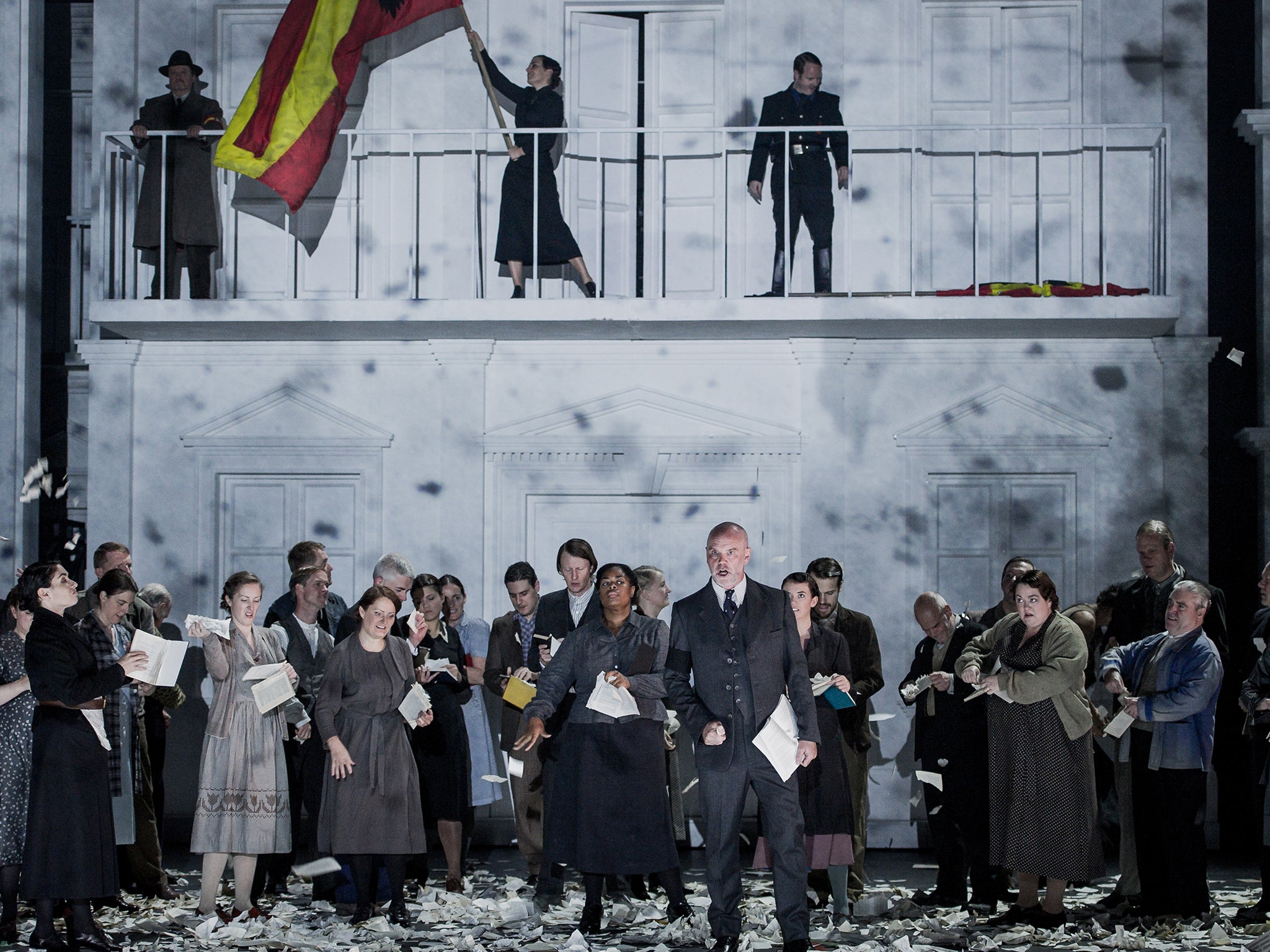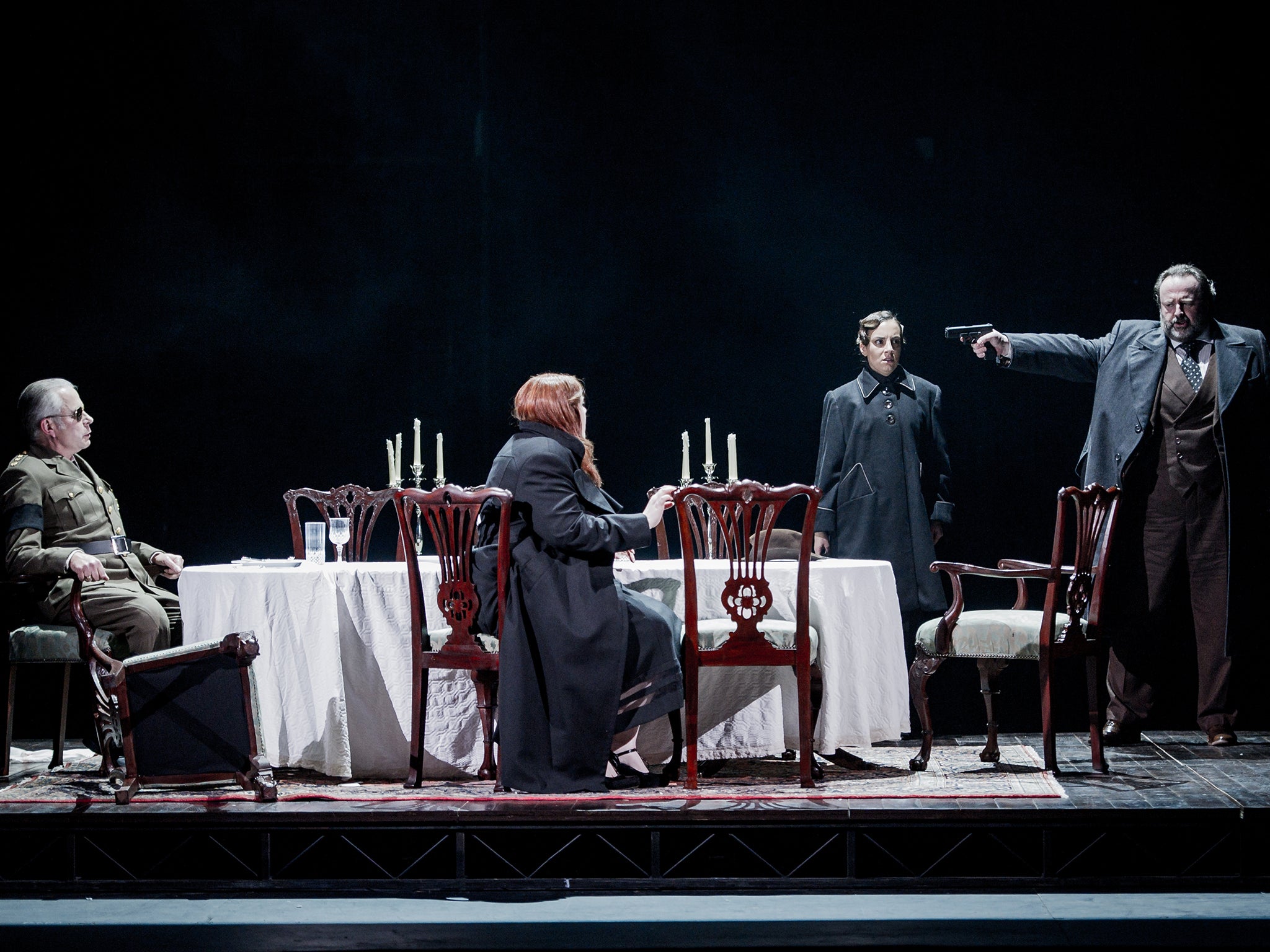The Force of Destiny, Coliseum, theatre review: Calixto Bieito's perverse production is saved by brilliant singing
I’ve seldom heard the ENO orchestra sound so thrilling

Your support helps us to tell the story
From reproductive rights to climate change to Big Tech, The Independent is on the ground when the story is developing. Whether it's investigating the financials of Elon Musk's pro-Trump PAC or producing our latest documentary, 'The A Word', which shines a light on the American women fighting for reproductive rights, we know how important it is to parse out the facts from the messaging.
At such a critical moment in US history, we need reporters on the ground. Your donation allows us to keep sending journalists to speak to both sides of the story.
The Independent is trusted by Americans across the entire political spectrum. And unlike many other quality news outlets, we choose not to lock Americans out of our reporting and analysis with paywalls. We believe quality journalism should be available to everyone, paid for by those who can afford it.
Your support makes all the difference.Verdi’s revenge opera uses a huge canvas but turns on a fatal triangle: Don Alvaro has accidentally killed the father of his beloved Leonora, who takes refuge in a monastery; her brother Don Carlo pursues Alvaro to the grave. The motivations are quintessentially youthful: Calixto Bieito doesn’t help his new production’s credibility by making these characters look and act irredeemably middle-aged.
Nor does he help the opera by disfiguring it with an obsessive vein of gratuitous sadism. Moreover, apart from two chillingly effective crowd scenes – one evoking the Spanish Civil War, the other Syria today - his direction is old-fashioned and wooden, with stand-and-deliver performances contrasting awkwardly with the busy back-projections and the surreal, angular sets (which don’t always work).

So why four stars? Because musically this show is stunning. Gwyn Hughes Jones’s elegantly-sung Alvaro is complemented by Anthony Michaels-Moore’s resonant and brilliantly-conceived Carlo, while James Creswell’s commanding Father Superior plays off Andrew Shore’s vividly characterised Friar Melitone. And in the American soprano Tamara Wilson as Leonora, ENO have struck gold: I can’t remember when this auditorium last resounded to a major Verdi role sung with such majestic beauty. Wilson has the power to ride effortlessly over the chorus singing fortissimo, and the artistry to create sublime magic with her harp-accompanied closing aria. And I’ve seldom heard the ENO orchestra sound so thrilling: under Mark Wigglesworth’s inspired direction, it rose to all the challenges of this wonderful score.
Join our commenting forum
Join thought-provoking conversations, follow other Independent readers and see their replies
Comments